Church Buildings Team Bulletin July 2025
Welcome to the latest edition of the Church Buildings Team Bulletin. It’s a big welcome to…
Read the story Skip to content
Skip to content
A church in Grimsby will become the central hub of a nature transformation thanks to an unexpected cascade of support from local charities, national organisations and even academic research projects.
St John and St Stephen’s church is at the heart of the East Marsh community in Grimsby. It is a vital lifeline for local people to find wellbeing, support and fulfilling activities in one of Britain’s poorest neighbourhoods.
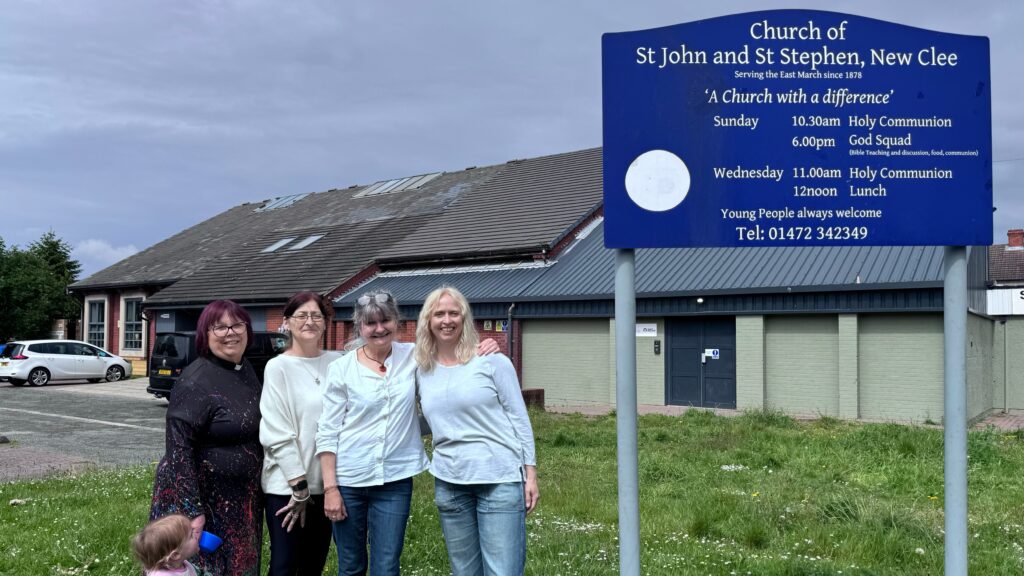
Since it gained A Rocha Eco Church status, it has been open to using its space creatively to change lives in sustainable ways. It currently holds a bronze award for its commitment to the environment.
Reverend Kay Jones, priest-in-charge of the church, believes that a bold vision of the community living in harmony with nature will root people in loving relationships and give them a vibrant hope and future.
She believes her prayers for this to happen are already being answered.
“We want to be the first relational town in Britain. We’ll help people dig deeper roots which are grounded in supportive relationships.”
Reverend Kay Jones, Priest-in-Charge at St John and St Stephen’s Church, Grimsby
The church was first approached by East Marsh United community group, who proposed building a potting shed in the church grounds using grant money from Grow Wild, the national outreach initiative of Royal Botanic Gardens, Kew.
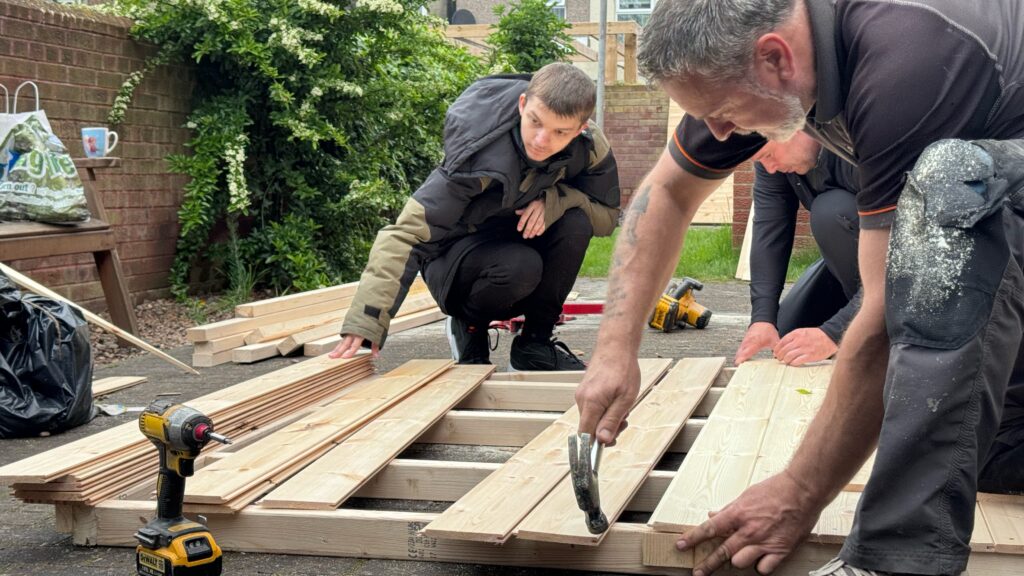
Students from an additional learning requirements school, ‘Learning for Life’, are currently helping in its construction and gaining practical skills which they will be able to use for life. They may even discover the type of work that suits their gifts.
When the shed is complete, it will be an accessible nursery from which plants and flowers can be distributed to public spaces in the area.
As the shed was just starting construction, further funding was offered by the Royal Horticultural Society, which the church used to build wooden planters at the front of the church. They will soon grow a variety of fruit and vegetables that can be used by the church café and be given out to the community. With time, the rich soil will be used to sustain Lincolnshire varieties of produce.
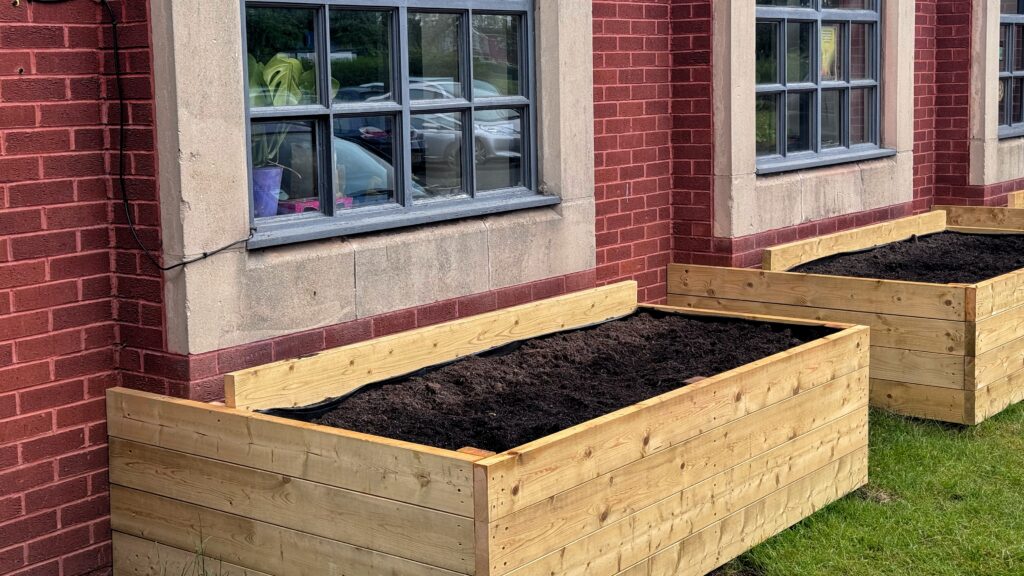
As the projects have expanded, more opportunities to make positive changes have revealed themselves. A desolate patch on a street corner at the church has been earmarked for a bold conversion into a luscious wildflower meadow and orchard, thanks to the Native Species Project Funding by Kew Gardens.
“We’re even going to be part of Humber Forest…something greater than ourselves is happening here. Being connected to the wider world in this way is an absolute joy.”
Reverend Kay Jones, Priest-in-Charge at St John and St Stephen’s Church, Grimsby
It will be a space that is full of life and loving care, and the hope is that the trees will grow fruits that can be taken home by passers-by and consumed as a healthy snack.
The church has seen an increase in the number of people getting involved in it’s work since the projects began, including small children who are enjoying planting seeds with their families and watching them grow.
The Grow Wild funding is also being used to organise community trips to beautiful natural spaces such as Gunby Hall and Gardens near Skegness. Not only is this beneficial for wellbeing, it also opens up interaction with God’s creation in these relaxing places, so that those working on the project can take inspiration from them and apply it in the church grounds.
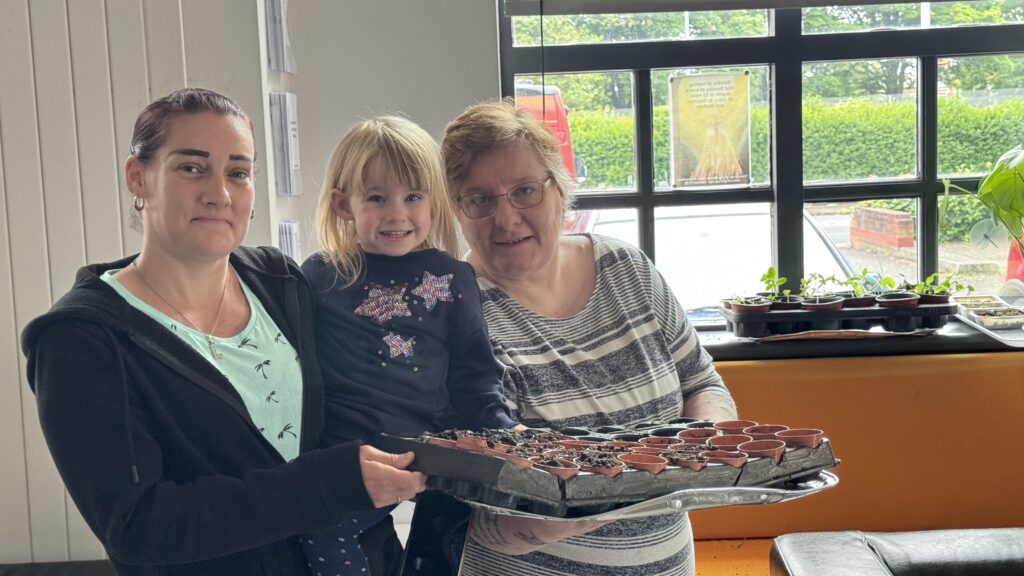
The project has been likened to the growth of a mustard seed, as the sowed seeds of a greater vision begin to reveal the shoots of real change.
“The kingdom of heaven is like to a grain of mustard seed, which a man took, and sowed in his field: Which indeed is the least of all seeds: but when it is grown, it is the greatest among herbs, and becometh a tree, so that the birds of the air come and lodge in the branches thereof.” (Matthew 13: 31 – 32)
There’s even research about to be conducted. The church are in conversation with the University of Lincoln to take part in ‘Human Geography’. They will get under the surface of how residents really feel about their emotional health. The research will help improve their connection with nature and bring to the light how an improving environment can be beneficial for mental health.
To keep the momentum as the projects progress and to ensure a natural lifestyle can be sustained for years to come, Lincolnshire Wildlife Trust have offered the church classes on gardening and how to look after nature. This means the community can spread the word and teach each other about how to look after the greenery in the area.
A gardener at Cambridge University has also set sights on supporting the projects by offering their skills in gardening and helping to ensure plants, flowers and trees are being well maintained.
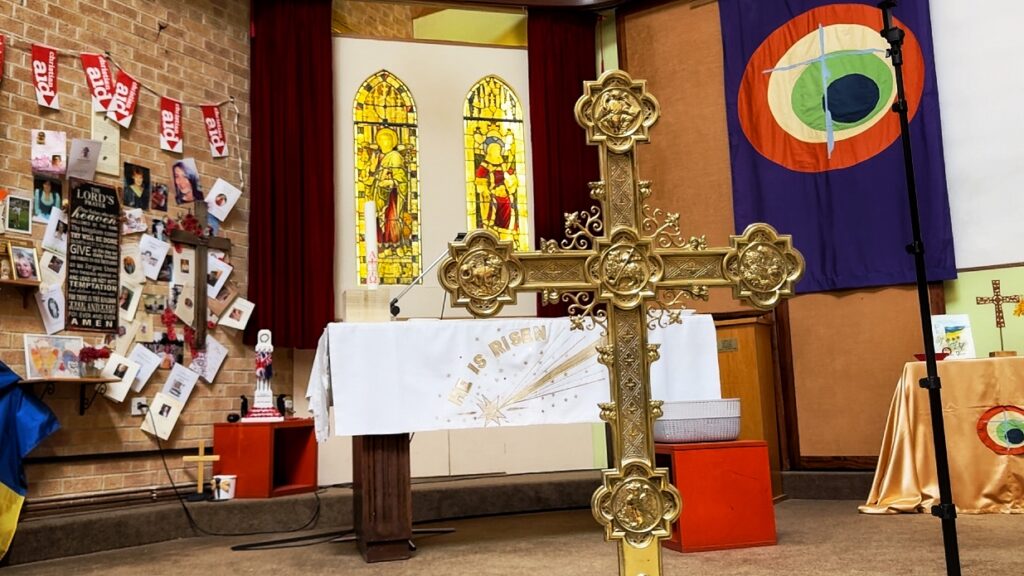
With so much funding and support being given to the church, they are making strides to becoming the first ‘relational town’ in the country. The church are supporting conversations with government officials around policy in this area, which will help restore a village atmosphere which truly cares for God’s creation around them.
Within the church, the architectural plans for a modern ecovillage hall are firmly stuck on the wall for all to see. There is an excitement in the air – the community are climbing a trellis of possibility.
Welcome to the latest edition of the Church Buildings Team Bulletin. It’s a big welcome to…
Read the storyWith our diocese recognising the climate crisis, we are seeking to live alongside creation in love and care as intended and strive for Carbon Net Zero by 2030. This eco church movement has seen churches taking action – with Barrowby claiming the very first A-RochaUK gold eco-award in Greater Lincolnshire.
Read the storyThe Church of England has approved a comprehensive redress scheme for survivors of Church-related abuse.
Read the story